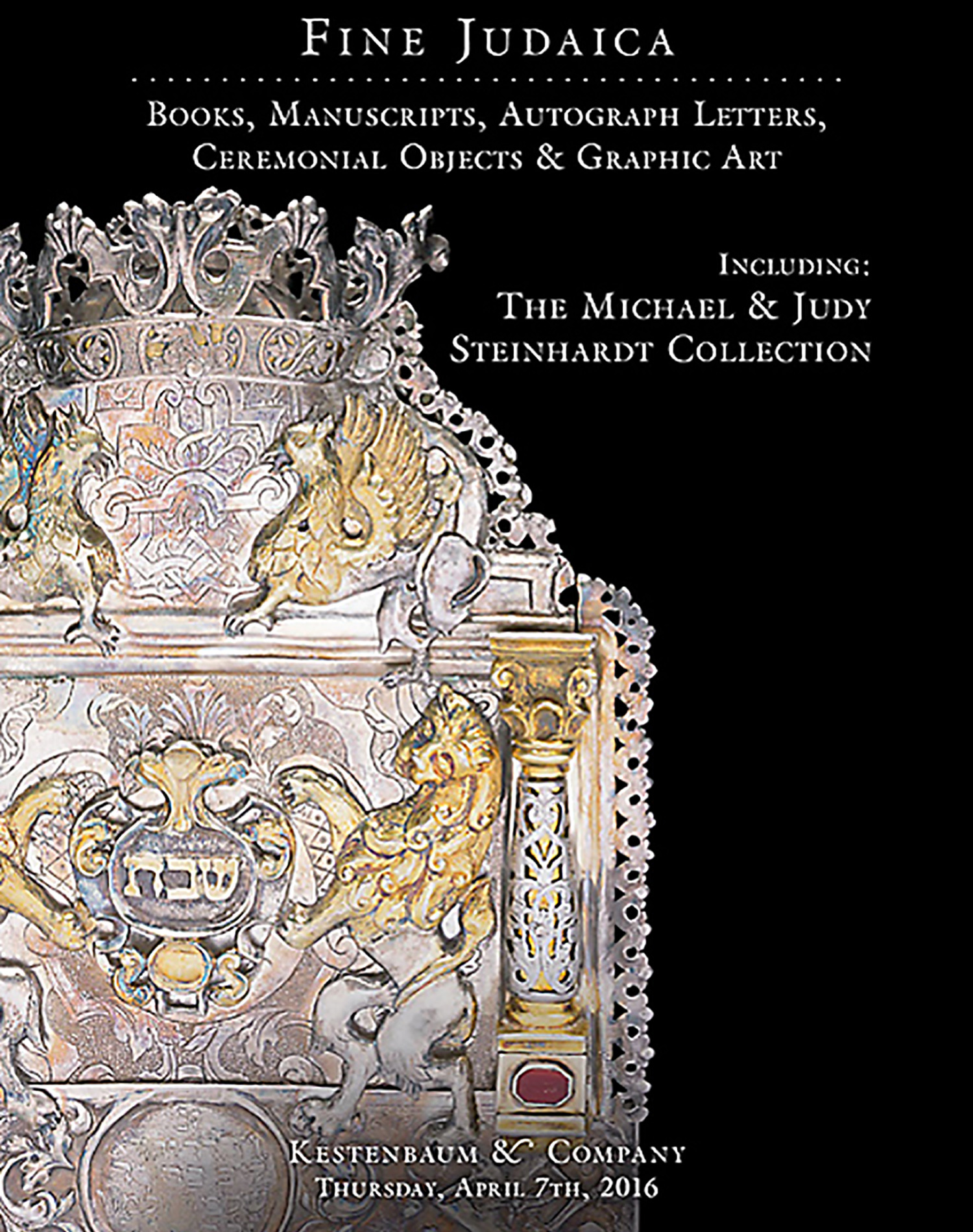(Weekly Periodicals). The Jewish Bakers’ Voice - Di Yidishe Bakers Shtime.

AUCTION 68 |
Thursday, April 07th,
2016 at 1:00
Fine Judaica: Books, Manuscripts, Autograph Letters, Ceremonial Objects and Graphic Art
Lot 347
(AMERICAN JUDAICA).
(Weekly Periodicals). The Jewish Bakers’ Voice - Di Yidishe Bakers Shtime.
New York: 1934-58
Est: $7,000 - $9,000
PRICE REALIZED $7,000
Affiliated with the Specialty Bakery Owners of America, the Jewish Bakers’ Voice was a trade journal that represented the interests of Jewish bakers’ associations across the United States and Canada. From its New York City headquarters, between 1927-58, it brought industry news, legal advice and marketing tips to thousands of Jewish bakers.
These weekly publications readily bring one into the everyday world of this particular Jewish industry, as well as providing a snapshot of American-Jewish life through the 24-years these publications cover.
Practical business advice is often offered: The importance of hiring an accountant, how to avoid being sued by customers over quality of baked goods, how to comply with health codes and pass inspections. The newspaper itself was embroiled in a legal controversy in 1934, as detailed in early issues found in this collection, when it accused an American-Jewish-owned company, the Certified Yeast Company, of buying German yeast for American distribution after the baking industry had declared a boycott following Hitler’s rise to power. The yeast company claimed they had stopped purchasing German yeast, and took the paper to the “Jewish Court of Conciliation,” suing for $450,000 in damages. When arbitration failed and the case went to the Brooklyn Supreme Court, the paper won the case, and thereafter remained an important source of information about appropriate (and legal) baking products suitable for the American Jewish baker and in line with the boycott.
News events and social changes filters through into these papers by way of their effect on the baking industry. World War II is reported through food supply news- rationing became a major concern for bakers, as many products that bakers needed to produce and distribute their goods came under shortage. The Jewish Bakers’ Voice offers tips on how to best manage shortages, and weekly updates about national supplies of sugar, eggs, etc. After the war, many Jewish refugees entered America through New York, and the Voice discusses ways to incorporate skilled European Jewish bakers into the community. When the US Military led the switch to enriched flours in the early 1940’s, the Voice included comparisons of enriched vs. unenriched prices.
Culture plays a role too: Through the 1940’s and 1950’s, advertisements recommend marketing strategies, such as radio advertisements, delivering attention-grabbing birthday cakes to corporate offices, and “modernizing” the decor of the bakery shop. Articles that appeared in the spring debated whether to keep one’s store open in New York while a full quarter of the city’s Jewish population spent their summer in the mountains.
Advertisements make up a large part of each issue, for brands such as Fleischmann’s Yeast, Pillsbury Flour, General Mills and Wesson Oil - along with many products targeted at the Jewish market: Pareve shortenings, strudel fillings and “The Perfect Oven for Rye Bread & Vienna Rolls & Chalahs.” The paper also contains community notices, such as births, Bar Mitzvah and wedding announcements; as well as the openings and closings of various bakeries. Few of these businesses maintained a formal level of Kosher supervision and simply formed relationships of trust with their clientele regarding levels of observance. For example, a Passover issue instructs the baker “If you operate the week of Passover producing cakes do not display signs in your show-window which may suggest that they are Kosher for Passover” - a sentence unfathomable in today’s highly-regulated Kosher market (i.e. indicating that the Jewish bakery does not observe Passover).
<<A lengthy run of a fascinating Kosher trade publication.>>
<<These Jewish Bakers Periodicals are exceedingly rare. None of the issues offered here are found in any institution in the United States.>>
